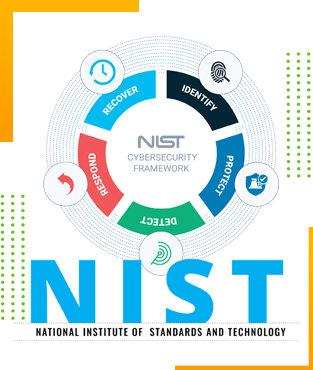NIST compliance means adhering to the security protocols and best practices set by the NIST government body to protect data that the government and its contractors use. The National Institute of Standards and Technology (NIST) is a non-regulatory government agency that aids in promoting the US industrial and innovation competitiveness to ensure economic security.
What is the purpose of NIST, you may be thinking? NIST enforces standards and best practices for securing and managing data within the government bodies and other organizations that the government contracts for work. NIST guidelines aren’t only for government bodies and the organizations they contract for work.
It is for everyone who wants to benefit from NIST certification. With the help of NIST compliance, private and public sectors can plan extensive security protocols with powerful controls to ensure that the data and systems stay protected.

Benefits of Being NIST Compliant
NIST-compliant companies have stronger security protocols and improve resilience if a data breach occurs. NIST compliance benefits are for both government and private sectors. These benefits include:
- Protecting confidential information and national security.
- Enhancing the competitive advantage.
- Safeguarding crucial frameworks from malicious attacks and human negligence.
- Lowering the risk of business disruption in case of a successful data breach.
- Making businesses competent work with the government.
- Assisting IT teams and helping them control new risk sources.
NIST Frameworks
Being NIST compliant depends on the framework being used. The most common frameworks organizations can use to become NIST compliant are:
- NIST 800-171
- NIST CSF (Cybersecurity Framework)
- NIST 800-53

Is NIST Compliance Obligatory?
Every federal government and federal contractor that handles government data should be NIST compliant. Organizations that fail to meet these regulations risk their future contracts. Organizations that should be NIST compliant include:
- Service providers
- Consulting companies
- Government staffing firms
- Manufacturers that sell to government suppliers or the government
- Academic institutions (e.g., universities)
NIST compliance isn’t mandatory for private sector organizations, but non-government organizations and businesses widely use it for data protection and cybersecurity. Becoming NIST compliant is highly beneficial for organizations while marketing their services and negotiating new contracts. NIST compliance shows that the organization has powerful security protocols and strives to maintain the best security procedures.

